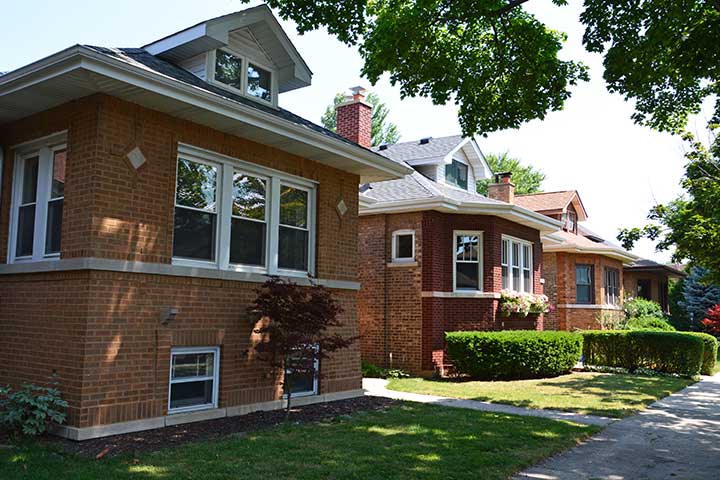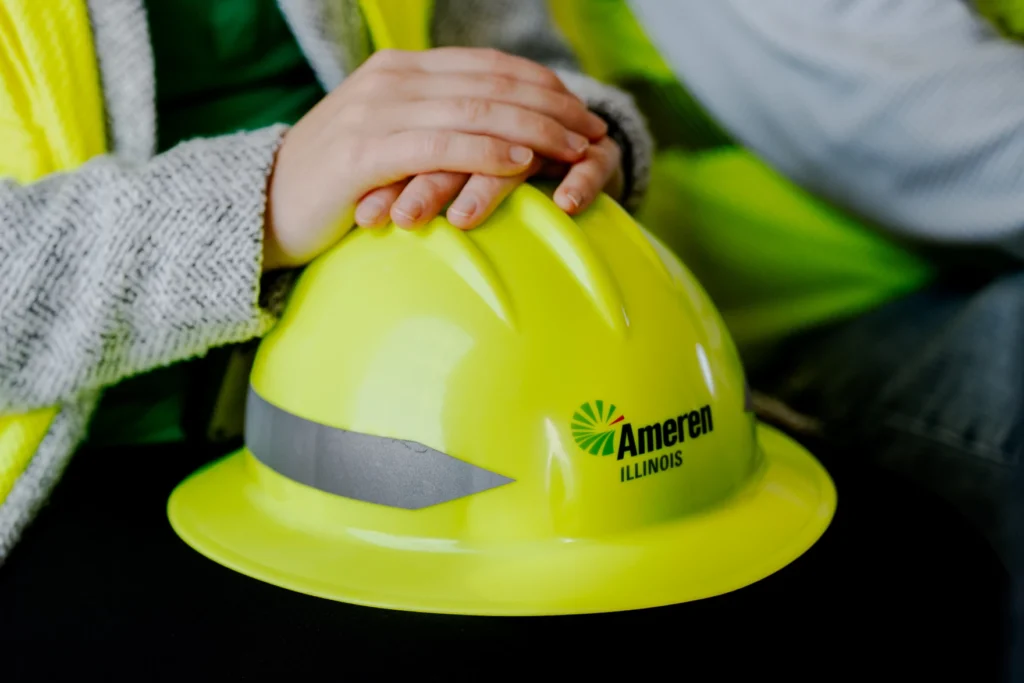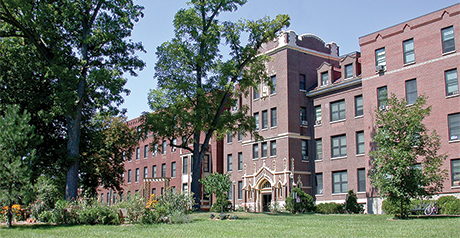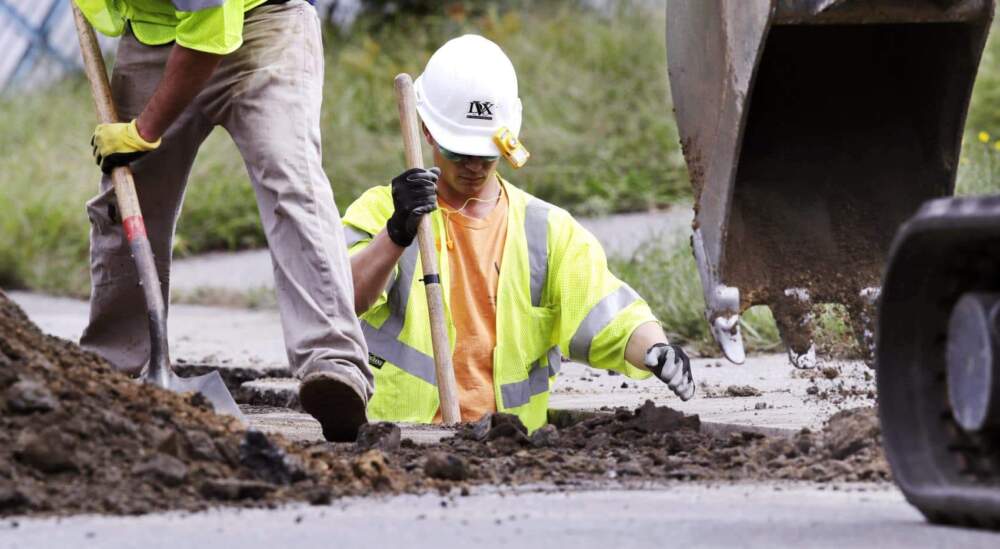For decades, the communities most affected by energy utilities’ actions have been excluded from the regulatory process. Until now.
Cheryl watson has lived for 60 years in the same bungalow where she grew up in Chatham, on the south side of Chicago. For most people, losing electricity is an inconvenience, but in a community such as Chatham, a power outage can quickly become a crisis.
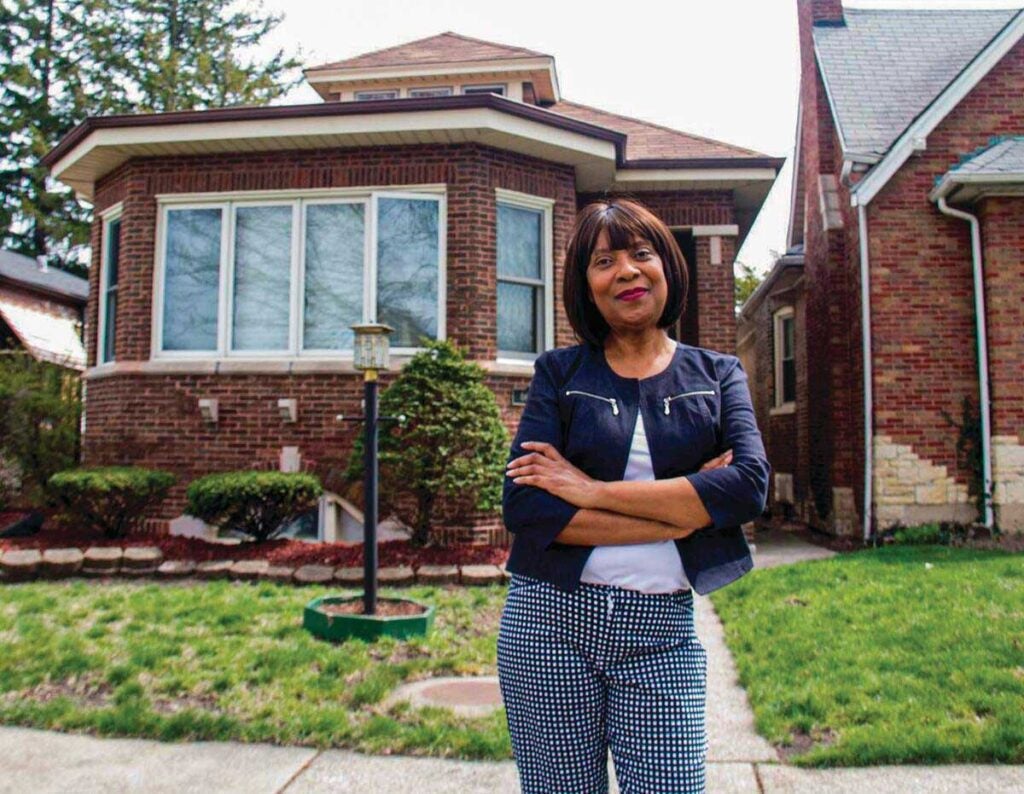
Chatham resident Cheryl Watson stands in her front yard. Photo: WBEZ
“Houses around here didn’t need AC when I was growing up, but now climate change means they do,” says Watson. “When we lose power in the summer, it can become a medical emergency for older folks like me.” Chronic disinvestment in Chatham compounds these risks. “If there’s even a little rain, the neighborhood floods and you’re trapped, and the nearest decent hospital is miles away.”
What’s worse, communities like Chatham are more likely to experience a dangerous power failure. In Chicago, power outages are 83% more frequent, and last 140% longer, in low-wealth areas and communities of color compared to whiter, wealthier communities.
These disparities are perpetuated when community members don’t have a seat at the table when energy decisions are being made. EDF attorney Christie Hicks is supporting community efforts to get community voices into the room where it happens.
Utilities are regulated by small, technocratic bodies called public utility commissions. Often composed of three to five members appointed by the governor, they control what rates utilities can charge, how they distribute costs between residential and industrial customers and what energy infrastructure they can build.
People who submit testimony during a commission’s public hearings are generally engineers, economists, scientists, “or someone else with a lot of letters after their name,” says Hicks.
There’s no legal reason why a community member can’t testify. But there are a lot of barriers.
“You need an attorney, you have to understand this really nuanced body of law, and make sense of some truly arcane language and procedures,” says Hicks. Plus, it’s not how things have historically been done at these slow to evolve commissions.
If people from frontline communities, who are the keepers of their community’s history, are not at the table, then history is destined to be repeated.
– Cheryl Watson, community advocate
Hicks is developing a system for collecting and incorporating testimony from community members into public utility legal proceedings. It’s a little like collecting citizen science, but in a legal context. She’s researching different techniques that community members can use to document what is really going on in their communities, like the lingering effects of shuttered fossil fuel facilities. Hicks and her team are also evaluating cases where this kind of testimony will have the biggest impact.
“The goal is to have lived experience in an impacted community recognized as a legitimate form of expertise,” says Hicks.
Her initial efforts are already paying off. Hicks recently worked with Watson to submit testimony in a case about evaluating utility performance. The commission sided with Watson and EDF and will require the utility to provide data that will clearly show if certain neighborhoods are receiving less reliable service than others. And the utility will have a portion of its profits tied to how it performs, based on these equity focused numbers.
“It all begins with who is at the table when decisions are being made,” says Watson. “If people from frontline communities, who are the keepers of their community’s history, are not at the table, then history is destined to be repeated.”
Changing how utilities do business takes a lot of work and isn’t going to happen overnight, says Hicks. But she is motivated by the community leaders she works with, who are relentless in their push for progress.
“As one of my community members likes to remind me,” says Hicks, “it ain’t over till we win.”

